Papers by Tachawan Panyawutthitham

VANNAVIDAS, 2024
บทความนี้นำเสนอภาพสะท้อนแนวคิดจักรวาลวิทยาการสร้างโลกและการสถาปนาความสำคัญของเมืองจากวรรณกรรมมุขป... more บทความนี้นำเสนอภาพสะท้อนแนวคิดจักรวาลวิทยาการสร้างโลกและการสถาปนาความสำคัญของเมืองจากวรรณกรรมมุขปาฐะ ในบริบทของเมืองเวียงสระ จังหวัดสุราษฎร์ธานี โดยการศึกษาจากวรรณกรรมมุขปาฐะของเมืองเวียงสระ จำนวน 5 เรื่อง ได้แก่ ตำนานเมืองเวียงสระ คำกลอนพังเพยเมืองเวียงสระ ลายแทงเมืองเวียงสระ ตำนานวัดคลองตาล และตำนานพระขี่หมู พบว่า วรรณกรรมมุขปาฐะได้สะท้อนถึงแนวคิดจักรวาลวิทยาตามคติศาสนาพราหมณ์-ฮินดู และคติวัฒนธรรมภาคใต้ โดยถูกใช้เพื่ออุปมาถึงความเก่าแก่โบราณ และวรรณกรรมมุขปาฐะได้ทำหน้าที่สถาปนาความสำคัญให้กับเมืองเวียงสระทั้งในมิติประวัติศาสตร์และมิติร่วมสมัยในด้านผู้นำหรือผู้ปกครองและการปกครอง ด้านพื้นที่และชัยภูมิที่ตั้ง ด้านความสำคัญต่อเมืองที่ใหญ่กว่าและเมืองสำคัญ ด้านความเจริญรุ่งเรืองและร่ำรวย และด้านความเชื่อในการสร้างความศักดิ์สิทธิ์ให้กับเมือง ซึ่งส่งผลต่อความคิดความเชื่อของชุมชน ทำให้ชุมชนหลอมรวมอดีตเข้ากับปัจจุบันด้วยวิธีต่าง ๆ / This article presents reflections on cosmology and the importance of cities based on oral literature of Wiang Sa City, Surat Thani province. The study examines five stories from oral literature, including the urban legend of Wiang Sa, Wiang Sa city gnome, clues to a treasure trove in Wiang Sa city, the legend of Wat Khlong Tan, and the legend of Pra Khee Mooh (the legend of the pig-riding deity). It was found that oral literature reflects cosmological concepts based on Brahmanism-Hinduism beliefs and Southern beliefs, being used as a metaphor for the ancient times, and oral literature has served to establish the city’s importance in both historical and contemporary dimensions in terms of ruler and government, area and location, importance to larger and important cities, prosperity and wealth, and belief in creating holiness for the city, which continues to shapes the community’s beliefs by blending elements of the past with the present.

Journal of Academic for Educational Administration Innovation, 2024
บทความเรื่อง“นโยบายส่งเสริมการศึกษาและการเรียนรู้ของรัฐบาลนางสาวแพทองธาร ชินวัตร”มุ่งศึกษานโยบายด... more บทความเรื่อง“นโยบายส่งเสริมการศึกษาและการเรียนรู้ของรัฐบาลนางสาวแพทองธาร ชินวัตร”มุ่งศึกษานโยบายด้านการศึกษาและการเรียนรู้ของรัฐบาลนางสาวแพทองธาร ชินวัตร เพื่อศึกษาประเด็นต่าง ๆ ในนโยบายที่เกี่ยวข้องกับการส่งเสริมการศึกษาและการเรียนรู้ และศึกษาภาพสะท้อนแนวคิดต่าง ๆ ที่ปรากฏในนโยบายการส่งเสริมการศึกษาและการเรียนรู้ของรัฐบาล โดยการศึกษาเอกสารจากคําแถลงนโยบายของคณะรัฐมนตรีที่แถลงต่อรัฐสภา พบว่า รัฐบาลมีการกำหนดนโยบายตั้งแต่การพัฒนาทักษะในวัยเด็ก การจัดการเรียนแบบยืดหยุ่น การใช้เทคโนโลยีสนับสนุนการศึกษาและการเรียนรู้ การสอนทักษะที่ใช้ประโยชน์ได้จริงใน การสร้างรายได้ การลดภาระและความเหลื่อมล้ำในการเข้าถึงการศึกษา การส่งเสริมความร่วมมือในการจัดการศึกษา การแก้ปัญหาเด็กและเยาวชนหลุดจากระบบการศึกษา การปฏิรูประบบอาชีวศึกษาและอุดมศึกษา การส่งเสริมการเรียนรู้เพื่อพัฒนาทักษะสนับสนุนนโยบายอำนาจละมุน (Soft Power) และการพัฒนาโครงสร้างพื้นฐานด้านการวิจัยและนวัตกรรม การกำหนดมาตรการทางภาษีมาสนับสนุนการศึกษา ตลอดจนการส่งเสริมการศึกษาและการเรียนรู้ฝึกอาชีพในกลุ่มผู้ติดยาเสพติด ซึ่งสะท้อนถึงแนวคิดการเรียนแบบยืดหยุ่น (Flexible Learning) ที่มุ่งให้เกิดการเรียนเพื่อสร้างรายได้ (Learn to Earn) อันเป็นแนวทางการพัฒนาตามระบบเศรษฐกิจฐานความรู้ (Knowledge-based Economy) ซึ่งจะเป็นประโยชน์ต่อผู้เรียน สังคม และเศรษฐกิจในภาพรวม ทั้งนี้ นโยบายของรัฐบาลมีเพียงข้อมูลเบื้องต้น แต่ไม่ได้สะท้อนให้เห็นมิติกระบวนการของนโยบาย / The article entitled “The Education and Learning Promotion Policy of the Government of Ms. Paetongtarn Shinawatra” aims to study the education and learning policies of the Government of Ms. Paetongtarn Shinawatra to study the issues in the policies related to the promotion of education and learning and to study the reflections of various ideas that appear in the government's education and learning promotion policies. By studying the documents from the policy statement of the Cabinet made to the Parliament. It was found that the government has formulated policies ranging from skill development in childhood, flexible learning management, The use of technology supports education and learning. Teaching practical skills to make money Reducing the burden and disparities in access to education Promoting Cooperation in Education Management Solving the problem of children and youth falling out of the education system Reform of the vocational and higher education system, promotion of learning to develop skills to support soft power policies, and development of research and innovation infrastructure. This reflects the concept of Flexible Learning, which aims to create learning to earn income, which is a development approach based on the knowledge-based economy, which will benefit learners, society, and the economy as a whole. The government's policy only contains preliminary information, but it does not reflect the policy process dimension
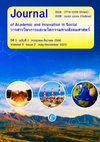
Journal of Academic and Innovation in Social, 2023
บทความวิชาการ เรื่อง “ปริทัศน์นโยบายวัฒนธรรมของรัฐบาลนายกเศรษฐา ทวีสิน” มุ่งศึกษานโยบายวัฒนธรรมขอ... more บทความวิชาการ เรื่อง “ปริทัศน์นโยบายวัฒนธรรมของรัฐบาลนายกเศรษฐา ทวีสิน” มุ่งศึกษานโยบายวัฒนธรรมของรัฐบาลนายกเศรษฐา ทวีสิน เพื่อศึกษาประเด็นต่าง ๆ ที่ปรากฏในนโยบายที่เกี่ยวกับวัฒนธรรม โดยการศึกษาผ่านคําแถลงนโยบายของคณะรัฐมนตรีที่แถลงต่อรัฐสภาและนโยบายของรัฐมนตรีว่าการกระทรวงวัฒนธรรม สรุปได้ว่านโยบายวัฒนธรรมของรัฐบาลนายเศรษฐา ทวีสิน มุ่งเน้นนโยบายหลักเกี่ยวกับการส่งเสริมวัฒนธรรมเพื่อสร้างมูลค่าเชิงเศรษฐกิจและการเป็น Soft Power ตลอดจนมุ่งเน้นสู่การสร้างแรงงานทักษะสูง การสร้างงาน และการสร้างรายได้ รวมถึงมีนโยบายที่เกี่ยวข้องกับวัฒนธรรมในนโยบายเกี่ยวกับสถาบันหลักของชาติที่มุ่งส่งเสริมให้คนมีความรักและภูมิใจในสถาบันชาติ ศาสนา พระมหากษัตริย์ นโยบายเกี่ยวกับการศึกษาที่มุ่งส่งเสริมให้ผู้เรียนภูมิใจในชาติและไม่ละเลยประวัติศาสตร์ของประเทศ และนโยบายเกี่ยวกับการยอมรับและส่งเสริมความหลากหลายที่มุ่งให้ความเท่าเทียม เปิดกว้าง และยอมรับความแตกต่างหลากหลายในด้านต่าง ๆ ส่วนนโยบายของรัฐมนตรีว่าการกระทรวงวัฒนธรรมสอดรับกับนโยบายของรัฐบาล โดยนโยบายวัฒนธรรมของรัฐบาลได้รับอิทธิพลมาจากวาทกรรมทางเศรษฐกิจ โดยเฉพาะอย่างยิ่งเศรษฐกิจสร้างสรรค์ และวาทกรรม Soft Power รวมถึงอิทธิพลจากแนวคิดชาตินิยม นอกจากนี้ นโยบายวัฒนธรรมของรัฐบาลมีเพียงข้อมูลเบื้องต้นเกี่ยวกับนโยบายเท่านั้น แต่ไม่ได้สะท้อนให้เห็นมิติกระบวนการของนโยบาย / Academic article on “Cultural Policy Review of the Government of Mr. Srettha Thavisin” focuses on the cultural policy of Mr. Srettha Thavisin's government. To study the issues that appear in policies related to culture by studying through the policy statements of the Council of Ministers to Parliament and the policies of the Minister of Culture. It was found that the cultural policy of the government of Mr. Srettha Thavisin Focus on core policies on cultural promotion to create economic value and soft power. It also focuses on creating high-skilled workers, creating jobs, and generating income. As well as having culturally related policies in policies on key national institutions aimed at encouraging people to love and be proud of the nation's institutions, religion, monarchy. Education policies aimed at encouraging learners to be proud of the nation and not neglecting the country's history, and policies on promotion of diversity aimed at equality openness in various fields. The policy of the Minister of Culture is in line with the government's policy. The government's cultural policies are influenced by economic discourse, especially the creative economy, and soft power discourse, as well as influenced by nationalist ideas. In addition, the government's cultural policy contains only policy basics. It does not reflect the process dimension of the policy.

Journal of Humanities and Social Sciences Phranakhon Si Ayutthaya Rajabhat University, 2023
การศึกษาวิจัยนี้มีวัตถุประสงค์เพื่อประเมินคุณค่าและความหมายของมรดกวัฒนธรรมและเพื่อเสนอแนะแนวทางกา... more การศึกษาวิจัยนี้มีวัตถุประสงค์เพื่อประเมินคุณค่าและความหมายของมรดกวัฒนธรรมและเพื่อเสนอแนะแนวทางการจัดการมรดกวัฒนธรรมของเมืองเวียงสระ จังหวัดสุราษฎร์ธานี เป็นงานวิจัยเชิงคุณภาพ เก็บข้อมูลจากการสัมภาษณ์เชิงลึกกับกลุ่มตัวอย่างซึ่งใช้วิธีการคัดเลือกโดยวิธีการสุ่มแบบบังเอิญและการสุ่มแบบเจาะจง สำหรับกลุ่มตัวอย่าง 2 กลุ่ม คือ 1. กลุ่มชาวบ้านตำบลเวียงสระ อำเภอเวียงสระ จังหวัดสุราษฎร์ธานี และ 2. ผู้มีส่วนเกี่ยวข้องกับการจัดการเมืองเวียงสระ รวมถึงเก็บข้อมูลจากการสังเกตอย่างไม่มีส่วนร่วมภายในพื้นที่เมืองเวียงสระและการปริทัศน์วรรณกรรม ซึ่งได้นำข้อมูลทั้งหมดมาวิเคราะห์และประมวลผลในรูปแบบเชิงพรรณนา พบว่า มรดกวัฒนธรรมของเมืองเวียงสระมีคุณค่าในด้านต่าง ๆ ได้แก่ คุณค่าเชิงสัญลักษณ์ คุณค่าเชิงวิชาการ คุณค่าเชิงสุนทรียะ คุณค่าเชิงเศรษฐกิจ และคุณค่าเชิงจิตใจ ส่วนการเสนอแนะแนวทาง
การจัดการมรดกวัฒนธรรมของเมืองเวียงสระ ประกอบด้วย 3 กระบวนการ คือ 1. แนวทางก่อนการดำเนินการจัดการมรดกวัฒนธรรม คือ การระบุแหล่งมรดกวัฒนธรรม การสำรวจมรดกวัฒนธรรม การประเมินมรดกวัฒนธรรม และการจัดทำบัญชีรายการมรดกวัฒนธรรม 2. แนวทางการดำเนินการจัดการมรดกวัฒนธรรม คือ การอนุรักษ์มรดกวัฒนธรรม การพัฒนามรดกวัฒนธรรม และการบริหารจัดการมรดกวัฒนธรรม และ 3. แนวทางหลังการดำเนินการจัดการมรดกวัฒนธรรม คือ การรักษาและสืบทอดมรดกวัฒนธรรม และการส่งเสริมกิจกรรมเกี่ยวกับมรดกวัฒนธรรม / The purposes of this research were to assess the value and the meaning of cultural heritage in Wiang Sa City, Surat Thani province, and to provide the guidelines of cultural heritage management. This is qualitative research in which data was gathered through in-depth interviews with the samples, which were randomized through accidental and purposive sampling. One sample group was the villagers of Wiang Sa, and the other group was samples who involved with the management of the city. In addition, the data from a non-participating observation and a review of the literature were included in the study. The data was analyzed and put into a descriptive format which the results showed that Wiang Sa City's cultural heritage has a variety of values, including symbolic, informational, aesthetic, economic, and spiritual values. There are three processes of cultural heritage management guidelines: the first steps are the site identification, the observation, and the assessment. The second steps are the preservation, the development, and the management. The last steps are the inheritance and the promotion of activities that involve with cultural heritages.
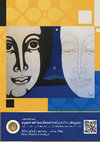
Academic Journal of Humanities and Social Sciences Burapha University, 2023
บทความวิชาการนี้มุ่งเน้นศึกษาการจัดแบ่งประเภทของเมืองเก่าเพื่อศึกษาภาพสะท้อนการจัดการจากการจัดแบ่... more บทความวิชาการนี้มุ่งเน้นศึกษาการจัดแบ่งประเภทของเมืองเก่าเพื่อศึกษาภาพสะท้อนการจัดการจากการจัดแบ่งประเภทของเมืองเก่าผ่านกรณีเปรียบเทียบการจัดแบ่งประเภทเมืองเก่าขององค์การยูเนสโกและการจัดแบ่งประเภทของเมืองเก่าในการดำเนินงานเมืองเก่าของประเทศไทย จากการวิเคราะห์เอกสารพบว่า การจัดแบ่งประเภทเมืองเก่าสามารถสะท้อนให้เห็นถึงมิติด้านการจัดการได้เป็นอย่างดี กล่าวคือ การจัดแบ่งประเภทเมืองเก่าขององค์การยูเนสโกมีการให้ความสำคัญต่อทั้งเมืองเก่าที่ตายแล้ว เมืองเก่าที่ยังมีชีวิต และเมืองในบริบทสมัยใหม่ ซึ่งสะท้อนให้เห็นการจัดการที่ให้ความสำคัญต่อการอยู่อาศัยของผู้คน ความเป็นพลวัตของเมือง และความจริงแท้ซึ่งมีความสัมพันธ์กับคุณค่าโดดเด่นอันเป็นสากล ขณะที่การจัดแบ่งประเภทเมืองเก่าของประเทศไทยให้ความสำคัญต่อเมืองเก่าที่ตายแล้วและเมืองเก่าที่มีชีวิตเท่านั้น แต่ขาดหายประเด็นเกี่ยวกับเมืองในบริบทสมัยใหม่ ภาพสะท้อนการจัดแบ่งประเภทแสดงให้เห็นถึงการจัดการที่ให้ความสำคัญต่อประเด็นด้านการอยู่อาศัยของผู้คนเช่นเดียวกัน มีการให้ความสำคัญในด้านจำนวนประชากรเพิ่มขึ้นมา และมีการให้ความสำคัญต่อโครงสร้างเมืองและการเป็นศูนย์กลางของความสำคัญของเมือง นอกจากนี้ยังพบว่าการจัดการเมืองเก่าของไทยให้ความสำคัญต่อมิติทางกายภาพของเมืองและมิติทางประวัติศาสตร์อย่างมีนัยสำคัญ / This paper mainly studies the classification of old towns. It compares UNESCO’s old town classification and the classification used in Thailand’s old town operations. According to the documentary analysis, the study found that the old town classification clearly reflected management dimensions. That is, UNESCO’s classification of old towns pays attention to dead old towns, living old towns, as well as cities in the modern context. This reflects the management that values people’s dwelling, the dynamics of the city and its authenticity, which are associated with outstanding universal values. However, Thailand’s old town classification only focuses on dead old towns and living old towns, while neglecting the issues in the modern context. Thailand’s classification similarly pays attention to people’s housing issues. There has been an increased emphasis on population, urban structure, and the centrality of urban importance. Finally, the study found that Thailand’s management of old towns puts a significant emphasis on the physical and historical dimensions of the city.

Journal of Social Science and Buddhistic Anthropology, 2022
บทความเรื่อง “มองเมืองผ่านมรดกมุขปาฐะ: จินตภาพและการประกอบสร้างบนฐานของมรดกภูมิปัญญาทางวัฒนธรรม เ... more บทความเรื่อง “มองเมืองผ่านมรดกมุขปาฐะ: จินตภาพและการประกอบสร้างบนฐานของมรดกภูมิปัญญาทางวัฒนธรรม เมืองเวียงสระ จังหวัดสุราษฎร์ธานี” เป็นบทความที่มุ่งเน้นศึกษาอำนาจของมรดก มุขปาฐะที่ส่งผลต่อการประกอบสร้างเมืองในบริบทต่าง ๆ ในเมืองเวียงสระ จังหวัดสุราษฎร์ธานี ซึ่งปัจจุบันเป็นเมืองโบราณที่มีสภาพเป็นเมืองร้าง โดยเมืองเวียงสระมีมรดกมุขปาฐะที่สำคัญอยู่สองส่วน คือ ส่วนแรกเป็นมรดกมุขปาฐะที่เล่าถึงยุคการก่อตัว ตั้งอยู่ และการเปลี่ยนผ่านเมือง ได้แก่ ตำนานเมืองเวียงสระ โดยมรดกมุขปาฐะส่วนนี้เป็นมรดกมุขปาฐะที่ฉายให้เห็นถึงจินตภาพของประวัติศาสตร์เมืองในสำนึกของชุมชน กล่าวคือ การฉายให้เห็นถึงจินตภาพแห่งพัฒนาการทางประวัติศาสตร์ของเมือง เจ้าผู้ครองเมือง ความรุ่มรวยและความเจริญของเมือง และความสำคัญของเมือง และส่วนที่สองคือ มรดกมุขปาฐะที่เล่าถึงยุคหลังการสลายของเมืองหรือยุคที่เมืองเป็นเมืองร้าง ได้แก่ ตำนานพระขี่หมู ซึ่งเป็นตำนานที่มีส่วนสำคัญในการช่วยสถาปนาความศักดิ์สิทธิ์และความเร้นลับให้กับพื้นที่เมืองเวียงสระในปัจจุบัน อันเป็นการประกอบสร้างความเชื่อเชิงมายาคติของประวัติศาสตร์เมือง โดยมรดกมุขปาฐะทั้งสองส่วนนั้นได้ประกอบสร้างถึงการมีอยู่ของพื้นที่ ตัวตน และอัตลักษณ์ของชาวเวียงสระและเมืองเวียงสระ ผ่านการถ่ายทอดและส่งผ่านจากรุ่นสู่รุ่น รวมถึงการศึกษาวิจัย ทั้งนี้ มรดกมุขปาฐะเหล่านั้นยังเป็นส่วนหนึ่งของความทรงจำร่วมที่มีพลังหลอมรวมชุมชนให้เกิดประเพณีและพิธีกรรมที่แสดงอัตลักษณ์ของชุมชนอย่างชัดเจนและสร้างสำนึกร่วมต่อการมีตัวตนในประวัติศาสตร์ชาติไทย / The article "City Through Oral Narrations: Intangible Cultural Heritage-Based Imagery and Construction in Wiang Sa City, Surat Thani Province" focuses on the study of oral narrations power influence on city construction of ancient and deserted city, Wiang Sa city Surat Thani province in various context dimensions. Wiang Sa city has two major oral narration, firstly, narration concerned the era of formation, setting and transformation of the city through, the city legend of Wiang Sa. This legend portrays historical imaginary in the sense of community, which are historical development, the ruler, the prosperity and growth of the city, and significance of the city. Secondly, the oral narrations depicts the post-dissolution of the city through the legend of Pra Khee Mooh (legend of the Pig Riding Deity), the key role to establish the sanctity and mystery of the modern Wiang Sa city area, it is a constructed of the myth beliefs of city history. These two oral narrations are legends have constructed the locality existence and identities of the people of Wiang Sa and the city of Wiang Sa through generation transmission and researches. Finally, oral narrations are collective memory powerfully enhancing Wiang Sa traditions and ceremonies with outstanding identity and constructed awareness of existence in Thai history.
Conference Presentations by Tachawan Panyawutthitham
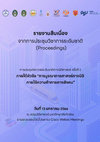
The 2th National Conference on Jurisprudence, 2023
บทความวิชาการเรื่อง "บัญชีรายการมรดกภูมิปัญญาทางวัฒนธรรมที่ขึ้นไว้ก่อนการประกาศใช้พระราชบัญญัติส่... more บทความวิชาการเรื่อง "บัญชีรายการมรดกภูมิปัญญาทางวัฒนธรรมที่ขึ้นไว้ก่อนการประกาศใช้พระราชบัญญัติส่งเสริมและรักษามรดกภูมิปัญญาทางวัฒนธรรม พ.ศ. 2559" มีวัตถุประสงค์เพื่อศึกษาการขึ้นบัญชีมรดกภูมิปัญญาทางวัฒนธรรมและเสนอข้อดำเนินการต่อบัญชีมรดกภูมิปัญญาทางวัฒนธรรมตามมาตรา 25 ของพระราชบัญญัติส่งเสริมและรักษามรดกภูมิปัญญาทางวัฒนธรรม พ.ศ. 2559 ซึ่งได้มีการบัญญัติถึงกรณีการขึ้นบัญชีมรดกภูมิปัญญาทางวัฒนธรรมที่ดำเนินการก่อนพระราชบัญญัตินี้บังคับใช้ โดยให้ถือว่ามรดกภูมิปัญญาทางวัฒนธรรมนั้นได้ขึ้นบัญชีตามพระราชบัญญัตินี้ แต่ในบทบัญญัติดังกล่าวไม่ได้กล่าวถึงการดำเนินการเพิ่มเติมต่อมรดกภูมิปัญญาทางวัฒนธรรมในส่วนนี้ไว้ จึงได้มีการเสนอให้มีการสำรวจบัญชีและรวบรวมข้อมูลมรดกภูมิปัญญาทางวัฒนธรรมเหล่านั้นย้อนหลัง โดยให้กรมส่งเสริมวัฒนธรรมจัดทำนโยบายเสนอต่อคณะกรรมการส่งเสริมและรักษามรดกภูมิปัญญาทางวัฒนธรรม และให้คณะกรรมการให้ความเห็นและพิจารณาให้ความเห็นชอบ แล้วให้ออกเป็น "ระเบียบคณะกรรมการส่งเสริมและรักษามรดกภูมิปัญญาทางวัฒนธรรม" หลักจากนั้นจึงให้คณะกรรมการส่งเสริมและรักษามรดกภูมิปัญญาทางวัฒนธรรมกรุงเทพมหานครหรือจังหวัดดำเนินการเรียบเรียงข้อมูลให้เป็นไปในรูปแบบที่กรมส่งเสริมวัฒนธรรมกำหนด เมื่อดำเนินการเรียบร้อยแล้วให้คณะกรรมการส่งเสริมและรักษามรดกภูมิปัญญาทางวัฒนธรรมพิจารณาตรวจสอบ และส่งให้กรมส่งเสริมวัฒนธรรมดำเนินการต่อในการรวบรวมไว้เป็นข้อมูลมรดกภูมิปัญญาทางวัฒนธรรมของชาติและเผยแพร่ต่อไป / The article "Intangible Cultural Heritage Inventory Established Prior to the Enactment of the Promotion and Preservation of Intangible Cultural Heritage Act B.E. 2559" aims to study the intangible cultural heritage inventory and propose a how to proceed of the intangible cultural heritage inventory under Section 25 of the Promotion and Preservation of Intangible Cultural Heritage Act B.E. 2559, which provides for the case of intangible cultural heritage inventory carried out before this Act. But the said provisions do not mention further action against the inheritance in this section. It has therefore been proposed that the inventory and collection of those cultural heritage data be collected retrospectively. The Department of Cultural Promotion shall prepare a policy to propose to the Committee for the Promotion and Preservation of Intangible Cultural Heritage, and the Committee shall comment and approve the issue of the "Regulation of the Committee for the Promotion and Preservation of Intangible Cultural Heritage", and then the Committee for the Promotion and Preservation of Intangible Cultural Heritage in Bangkok or the province shall compile the information into the format prescribed by the Department of Cultural Promotion. Once this is done, The Committee for the Promotion and Preservation of Intangible Cultural Heritage shall consider, review, and submit to the Department of Cultural Promotion to continue collecting and disseminating national intangible cultural heritage information.
Thesis Chapters by Tachawan Panyawutthitham
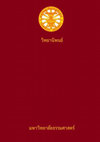
Thammasat University, 2022
การศึกษาวิจัยนี้มีวัตถุประสงค์เพื่อศึกษาภูมิทัศน์เมืองประวัติศาสตร์ ภูมิปัญญาการปรับตัวของชุมชนใน... more การศึกษาวิจัยนี้มีวัตถุประสงค์เพื่อศึกษาภูมิทัศน์เมืองประวัติศาสตร์ ภูมิปัญญาการปรับตัวของชุมชนในภูมิทัศน์เมืองประวัติศาสตร์ และการปรับใช้ประโยชน์จากภูมิปัญญาในภูมิทัศน์เมืองประวัติศาสตร์ของเมืองเวียงสระ จังหวัดสุราษฎร์ธานี โดยใช้ระเบียบวิธีวิจัยเชิงคุณภาพ ซึ่งดำเนินการวิจัยภาคสนามโดยการสัมภาษณ์เชิงลึกกลุ่มตัวอย่าง 3 กลุ่ม จำนวน 44 คน และการสังเกตอย่างไม่มีส่วนร่วมภายในพื้นที่เมืองเวียงสระ ร่วมกับการวิจัยเอกสารโดยการปริทัศน์วรรณกรรม ซึ่งนำข้อมูลมาวิเคราะห์และประมวลผลในรูปแบบเชิงพรรณนา ผลการศึกษาพบว่า 1) ภูมิทัศน์เมืองประวัติศาสตร์ของเมืองเวียงสระมีลักษณะเป็นภูมิทัศน์ศักดิ์สิทธิ์ ที่มีองค์ประกอบของมรดกวัฒนธรรมน์ที่จับต้องได้ อันประกอบไปด้วยเมืองชั้นในที่มีร่องรอยของอดีตและเมืองชั้นนอกที่มีพลวัตแบบค่อยเป็นค่อยไป มรดกวัฒนธรรมที่จับต้องได้ถูกซ้อนทับด้วยมรดกวัฒนธรรมที่จับต้องไม่ได้ คือ ความเชื่อและจิตวิญญาณของเมืองเวียงสระ ส่งผลให้พื้นที่เมืองเวียงสระมีความศักดิ์สิทธิ์ 2) ชุมชนแสดงภูมิปัญญาการปรับตัวในภูมิทัศน์ศักดิ์สิทธิ์เมืองเวียงสระเป็น 3 รูปแบบ คือ สำนึกทางประวัติศาสตร์และความเชื่อของชุมชน การใช้พื้นที่เมืองเวียงสระในเชิงจิตวิญญาณของชุมชน และกุศโลบายการอนุรักษ์เมืองเวียงสระ และ 3) การปรับใช้ประโยชน์จากภูมิปัญญาในภูมิทัศน์เมืองเวียงสระ พบการใช้ประโยชน์ด้านสัญลักษณ์และการเป็นตัวแทน ด้านการศึกษาและวิชาการ ด้านการท่องเที่ยววัฒนธรรม และด้านงานสร้างสรรค์ ภูมิปัญญาการปรับตัวนำไปสู่สำนึกร่วมทางประวัติศาสตร์ ความเชื่อ และความหวงแหนมรดกวัฒนธรรม / This study aims to study the historical urban landscape, adaptation of community wisdom and utilization of community wisdom adaptation in historic urban landscape of Wiang Sa city, Surat Thani province. This research employs qualitative methods by field research, in-depth interview of 44 respondents in 3 groups, non-participatory observation and documentary research concerning Wiang Sa city, and analyze to demonstrate in a descriptive form. The study found that 1) Wiang Sa historical urban landscape is a sacred landscape composed of tangible cultural heritage, an inner city with antique traces and an outer city with gradual dynamic. These tangible cultural heritages have overlapped with intangible cultural heritage, beliefs, and spirit of Wiang Sa which develop Wiang Sa to a sacred landscape. 2) Wiang Sa community has displayed wisdom adaptation in a sacred landscape in 3 patterns; establishment of historical awareness and community beliefs, applying space in spiritual concept, and conservative policy of Wiang Sa. 3) Utilization of Wiang Sa urban landscape wisdom mostly focuses on symbolism and representation, education and academics, cultural tourism, and creative products. Wisdom adaptation has contributed to collective awareness in history, beliefs, and protection of cultural heritages.
Talks by Tachawan Panyawutthitham
Connect Fest 3 : Power Together – Power to Future รวมพลังองค์กรนวัตกรรมเปลี่ยนสังคม, 2024
เสวนาหัวข้อ “Power Together : องค์กรนวัตกรรมเปลี่ยนสังคม” ในงาน “Connect Fest 3 : Power Together ... more เสวนาหัวข้อ “Power Together : องค์กรนวัตกรรมเปลี่ยนสังคม” ในงาน “Connect Fest 3 : Power Together – Power to Future รวมพลังองค์กรนวัตกรรมเปลี่ยนสังคม”
วิทยากร
• ปทิตตา บูรณกิจ โครงการอาสาคืนถิ่น มูลนิธิอาสาสมัครเพื่อสังคม (มอส.)
• พิชาล สร้อยสุวรรณ เครือข่ายพื้นที่นี้ดีจัง
• อนุพงษ์ จันทะแจ่ม มูลนิธินวัตกรรมสร้างสรรค์สังคม (SIY)
• ภูมิสิทธ์ ศิระศุภฤกษ์ชัย a-chieve
• แสงศิริ ตรีมรรคา มูลนิธิเข้าถึงเอดส์ (ACCESS)
• เตชวัน ปัญญาวุฒิธรรม สำนักงานบริหารและพัฒนาองค์ความรู้ (องค์การมหาชน) (OKMD)
ดำเนินรายการ
• ดวงรักษ์ เลิศมั่งมี มูลนิธิวายไอวาย (Why I Why)
• กชกร ความเจริญ สมาคมคมคนรุ่นใหม่กับนวัตกรรมทางสังคม (SYSI)
วันที่ 30 พฤศจิกายน 2567 ณ สำนักงานกองทุนสนับสนุนการสร้างเสริมสุขภาพ (สสส.)
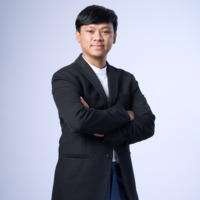
Uploads
Papers by Tachawan Panyawutthitham
การจัดการมรดกวัฒนธรรมของเมืองเวียงสระ ประกอบด้วย 3 กระบวนการ คือ 1. แนวทางก่อนการดำเนินการจัดการมรดกวัฒนธรรม คือ การระบุแหล่งมรดกวัฒนธรรม การสำรวจมรดกวัฒนธรรม การประเมินมรดกวัฒนธรรม และการจัดทำบัญชีรายการมรดกวัฒนธรรม 2. แนวทางการดำเนินการจัดการมรดกวัฒนธรรม คือ การอนุรักษ์มรดกวัฒนธรรม การพัฒนามรดกวัฒนธรรม และการบริหารจัดการมรดกวัฒนธรรม และ 3. แนวทางหลังการดำเนินการจัดการมรดกวัฒนธรรม คือ การรักษาและสืบทอดมรดกวัฒนธรรม และการส่งเสริมกิจกรรมเกี่ยวกับมรดกวัฒนธรรม / The purposes of this research were to assess the value and the meaning of cultural heritage in Wiang Sa City, Surat Thani province, and to provide the guidelines of cultural heritage management. This is qualitative research in which data was gathered through in-depth interviews with the samples, which were randomized through accidental and purposive sampling. One sample group was the villagers of Wiang Sa, and the other group was samples who involved with the management of the city. In addition, the data from a non-participating observation and a review of the literature were included in the study. The data was analyzed and put into a descriptive format which the results showed that Wiang Sa City's cultural heritage has a variety of values, including symbolic, informational, aesthetic, economic, and spiritual values. There are three processes of cultural heritage management guidelines: the first steps are the site identification, the observation, and the assessment. The second steps are the preservation, the development, and the management. The last steps are the inheritance and the promotion of activities that involve with cultural heritages.
Conference Presentations by Tachawan Panyawutthitham
Thesis Chapters by Tachawan Panyawutthitham
Talks by Tachawan Panyawutthitham
วิทยากร
• ปทิตตา บูรณกิจ โครงการอาสาคืนถิ่น มูลนิธิอาสาสมัครเพื่อสังคม (มอส.)
• พิชาล สร้อยสุวรรณ เครือข่ายพื้นที่นี้ดีจัง
• อนุพงษ์ จันทะแจ่ม มูลนิธินวัตกรรมสร้างสรรค์สังคม (SIY)
• ภูมิสิทธ์ ศิระศุภฤกษ์ชัย a-chieve
• แสงศิริ ตรีมรรคา มูลนิธิเข้าถึงเอดส์ (ACCESS)
• เตชวัน ปัญญาวุฒิธรรม สำนักงานบริหารและพัฒนาองค์ความรู้ (องค์การมหาชน) (OKMD)
ดำเนินรายการ
• ดวงรักษ์ เลิศมั่งมี มูลนิธิวายไอวาย (Why I Why)
• กชกร ความเจริญ สมาคมคมคนรุ่นใหม่กับนวัตกรรมทางสังคม (SYSI)
วันที่ 30 พฤศจิกายน 2567 ณ สำนักงานกองทุนสนับสนุนการสร้างเสริมสุขภาพ (สสส.)
การจัดการมรดกวัฒนธรรมของเมืองเวียงสระ ประกอบด้วย 3 กระบวนการ คือ 1. แนวทางก่อนการดำเนินการจัดการมรดกวัฒนธรรม คือ การระบุแหล่งมรดกวัฒนธรรม การสำรวจมรดกวัฒนธรรม การประเมินมรดกวัฒนธรรม และการจัดทำบัญชีรายการมรดกวัฒนธรรม 2. แนวทางการดำเนินการจัดการมรดกวัฒนธรรม คือ การอนุรักษ์มรดกวัฒนธรรม การพัฒนามรดกวัฒนธรรม และการบริหารจัดการมรดกวัฒนธรรม และ 3. แนวทางหลังการดำเนินการจัดการมรดกวัฒนธรรม คือ การรักษาและสืบทอดมรดกวัฒนธรรม และการส่งเสริมกิจกรรมเกี่ยวกับมรดกวัฒนธรรม / The purposes of this research were to assess the value and the meaning of cultural heritage in Wiang Sa City, Surat Thani province, and to provide the guidelines of cultural heritage management. This is qualitative research in which data was gathered through in-depth interviews with the samples, which were randomized through accidental and purposive sampling. One sample group was the villagers of Wiang Sa, and the other group was samples who involved with the management of the city. In addition, the data from a non-participating observation and a review of the literature were included in the study. The data was analyzed and put into a descriptive format which the results showed that Wiang Sa City's cultural heritage has a variety of values, including symbolic, informational, aesthetic, economic, and spiritual values. There are three processes of cultural heritage management guidelines: the first steps are the site identification, the observation, and the assessment. The second steps are the preservation, the development, and the management. The last steps are the inheritance and the promotion of activities that involve with cultural heritages.
วิทยากร
• ปทิตตา บูรณกิจ โครงการอาสาคืนถิ่น มูลนิธิอาสาสมัครเพื่อสังคม (มอส.)
• พิชาล สร้อยสุวรรณ เครือข่ายพื้นที่นี้ดีจัง
• อนุพงษ์ จันทะแจ่ม มูลนิธินวัตกรรมสร้างสรรค์สังคม (SIY)
• ภูมิสิทธ์ ศิระศุภฤกษ์ชัย a-chieve
• แสงศิริ ตรีมรรคา มูลนิธิเข้าถึงเอดส์ (ACCESS)
• เตชวัน ปัญญาวุฒิธรรม สำนักงานบริหารและพัฒนาองค์ความรู้ (องค์การมหาชน) (OKMD)
ดำเนินรายการ
• ดวงรักษ์ เลิศมั่งมี มูลนิธิวายไอวาย (Why I Why)
• กชกร ความเจริญ สมาคมคมคนรุ่นใหม่กับนวัตกรรมทางสังคม (SYSI)
วันที่ 30 พฤศจิกายน 2567 ณ สำนักงานกองทุนสนับสนุนการสร้างเสริมสุขภาพ (สสส.)